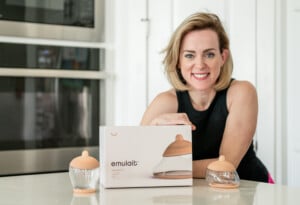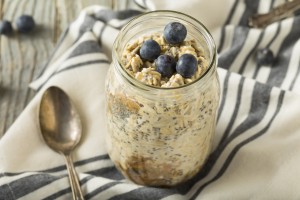There are many decisions to make in parenthood. Who should I pick as our baby’s pediatrician? Who will watch the baby when I go back to work? Am I ready for this? Of course, questions about how to feed your baby will also cross your mind. Will you exclusively breastfeed? Will you exclusively pump? Or will you do a combination of the two? Will you formula feed? Often, mothers have an idea of how they wish to feed their baby, and this decision may be easy. However, for others, deciding between breastfeeding vs. pumping may be one of the hardest decisions they make as new mothers.
Breastfeeding vs. Pumping
Studies show that 83.2% of mamas start their journey exclusively breastfeeding.1 For some, the breastfeeding journey may be easy and work best. For others, it may be difficult or doesn’t fit with their lifestyle, and that’s okay. As a lactation consultant and mama, I encourage clients to do what works best for them and their families. In the first few weeks of parenthood, you may navigate this feeding space and ask yourself, “What will work best for us?”
When it comes to breastfeeding vs. pumping, there are a variety of options. You may be wondering what the pros and cons are of each. Some mamas prefer breastfeeding over pumping, and other families find that exclusive pumping is best for them. I always recommend taking the time to decide what works best for you and your baby. To help you decide, here are some pros and cons of breastfeeding and pumping.
Breastfeeding Pros
From those feel-good hormones and bonding time with your baby, there are plenty of reasons to breastfeed. Here are several pros to consider in the breastfeeding vs. pumping decision.
1. It’s free: Your time is not free, but breastfeeding saves you money! Once established, breastfeeding can be easy and, of course, free and available everywhere you go.
2. Less mess: It will also be less messy, meaning there is no need to clean and sanitize bottles and pump parts, which can be a nuisance of exclusive pumping.
3. Bonding time: As a breastfeeding mama, I have to say one of the biggest pros of exclusive breastfeeding is the bonding time that it gave me with my daughter. Breastfeeding for one year will take up about 1,800 hours of your time (crazy, yes, I know).2
4. Magic milk: Shockingly, another benefit of exclusive breastfeeding is that your breastmilk will change to match your baby’s needs! This means that if your baby is sick, her saliva will cause your breastmilk to adjust and provide the necessary antibodies that the baby needs to help respond to the specific virus or bacteria that they have been exposed to.3 Pretty incredible, right?
5. It’s quicker: Your baby will most likely empty your breasts better and faster than any pump will, especially as they get older. So, you may find that exclusive breastfeeding sometimes tends to be quicker.
6. Less to pack: When out with your baby, you won’t have to worry about your pump parts, bottles, and everything else. All you need to feed your baby are your boobs, which means forgetting your baby’s food is impossible. It’s also nice that you have to carry fewer things in your diaper bag.
7. Milk regulation: Your baby will also help regulate your breast milk supply. Breastfeeding is based on a supply and demand system.4 This means that during extensive growth periods, your baby will eat more often and likely take more; in turn, your body will make more breast milk. And when the baby takes less, your body will produce less milk.
8. No wait time: When your baby is hungry, their meal is always ready. You don’t have to prepare a bottle and warm up your milk. This is especially helpful when your baby wants to eat immediately and for nighttime feedings.
9. Feel-good hormones: Breastfeeding also releases hormones that can improve relaxation and bonding and help soothe mama and baby.5
Breastfeeding Cons
It’s not all great with exclusive breastfeeding; there are constant interruptions, and you never really know how much your baby might be taking during a feed. Here are several cons of breastfeeding to consider when it comes to breastfeeding vs. pumping.
1. Learning curve: Even though breastfeeding is natural, it doesn’t always come naturally. It’s a learned skill for both mama and baby that requires time, patience, and practice. It can be challenging as you work through the hurdles, which can be discouraging. I recommend working with a lactation consultant those first few days or weeks with your little one to help you start well.
2. Interruptions: Because breastfeeding can be time-consuming, sometimes it will feel like you are pulled away from other things you think you need to do. Similarly, if the baby is hungry, you must drop whatever you’re doing and feed them. Having these kinds of daily interruptions can be challenging.
3. Lack of freedom: Breastfeeding mamas may find it hard to step away from their babies for long periods. Going to the grocery store, a doctor’s appointment, or even on a date night may not be feasible for exclusively breastfeeding moms.
4. More difficult in public: Mothers can legally breastfeed in public in every state, but some mothers are not as comfortable. This can make feeding your baby more challenging since you may have to nurse your baby in a bathroom, find a private room, use a nursing cover, or breastfeed in the car.
5. Unknown consumption: With breastfeeding, you don’t always know exactly how much the baby takes with each feeding. For some, this can cause worry and concern, especially for moms with low supply issues.
6. It can be painful: Working through painful latches, sleepless nights, and engorged breasts can be rough. For some, breastfeeding issues are easily worked through. However, for others, those first few weeks can make you second-guess your thoughts on breastfeeding.
7. Just say no: When exclusively breastfeeding, you may have to avoid certain beverages, medications, and foods at certain times of the day and night if your baby is up and eating around the clock.
8. No help: If you are exclusively breastfeeding your baby, you are the only one who can feed your little one for every single feeding morning, noon, and night. It can be difficult for some not to get a break or extra sleep.
Pumping Pros
On the other hand, mamas gain some freedom when it comes to pumping and can create a store of milk supply for others to help them. Here are some pros of pumping to think about.
1. More flexibility and freedom: Pumping allows you to pump on your own schedule and provides you with more flexibility and freedom.
2. Others can help: It will allow others to step in, provide your baby with feedings, and allow you time to leave the house or rest.
3. Precise measurements: One benefit of giving bottles is knowing what your baby takes. For many moms, this can provide them with added peace and comfort.
4. Comfortability: Exclusive pumping can be more comfortable in those early weeks when latching can be painful and difficult.
5. Monitor your milk: You will know if your milk supply has changed because you will likely know how much you usually pump at specific points of the day. This can also give some mamas some peace of mind.
6. Create a storage supply: Exclusive pumping may allow some mamas to help boost their breast milk storage supply. Sometimes, you may pump more than the baby can take in a feeding, which you can then save for later feedings.
Pumping Cons
Despite the freedom and extra milk you can gain, pumping also means cleaning up and managing all that comes with the breast pump machines. Here are several cons to pumping you should think about.
1. Clean-up required: As mentioned above, pumping can require quite a clean-up. There are a lot of pump and bottle parts that need disinfecting every day.
2. Letdowns may suffer: Some mamas experience fluctuations in milk supply throughout the day. They may have trouble with “letdowns.” Understandably, this can cause some anxiety.
3. It can get expensive: Pumping can also get costly. Personal or wearable breast pumps, breast pump part replacements, milk storage bags, and bottles can get pricey. However, your insurance will likely cover a basic model breast pump. I recommend contacting them before your baby is born to learn about your options.
4. Hooking up can be a hassle: It can be a hassle to hook yourself up to a pump every 2-3 hours for months on end, especially if you have a hungry baby on your hands.
5. More to pack: When leaving the house, you must bring more than your pump. You must bring the pump parts, bottles, ice packs, cooler, extra milk, and storage containers. It can be a lot to remember and carry.
6. Lack of immune boost: Exclusive pumping typically doesn’t allow your body to detect when the baby is sick and may have fewer immune system benefits.
7. Lack of privacy: Finding a private space to pump can sometimes cause problems, especially when out and about or socializing.
8. Fridge and freezer fill up: Finding appropriate space for milk storage can sometimes be challenging for exclusive pumping mamas, especially if they have an abundant supply.
As you can see, breastfeeding and pumping have many pros and cons. As someone who has done both, I know that feeding a baby can be time-consuming and exhausting, no matter how you do it. However, doing what feels comfortable for you is always best. Sometimes, it may take a couple of weeks or even months to get to a point where you feel confident and well-adjusted to your feeding techniques. Don’t be afraid to ask for help if you need it. Your local board-certified lactation consultant is always a great resource!






























